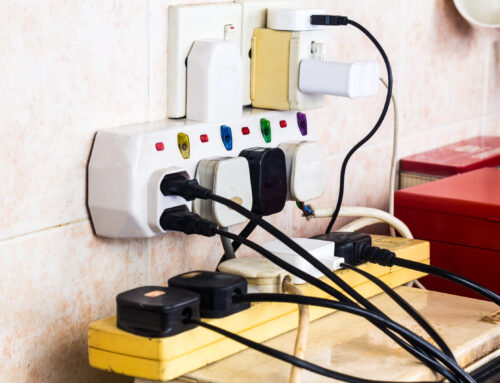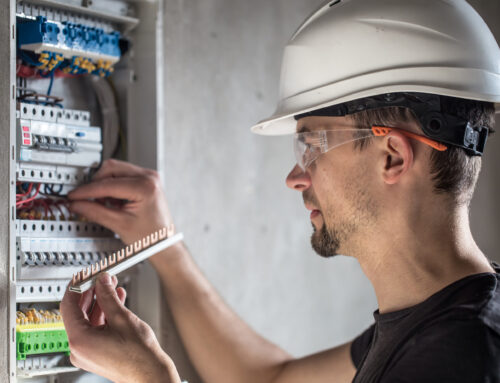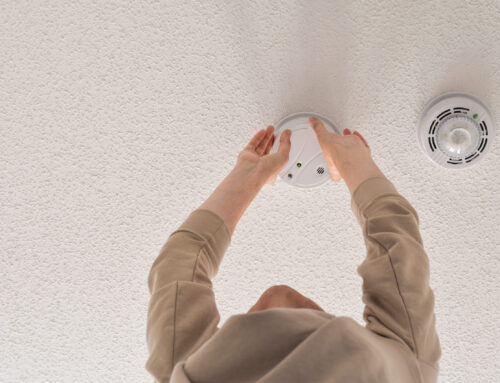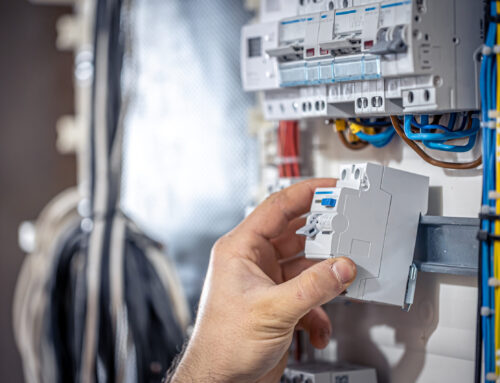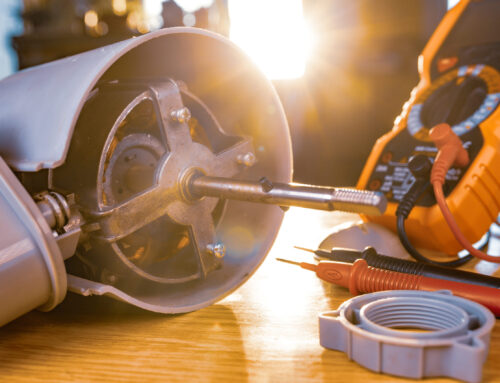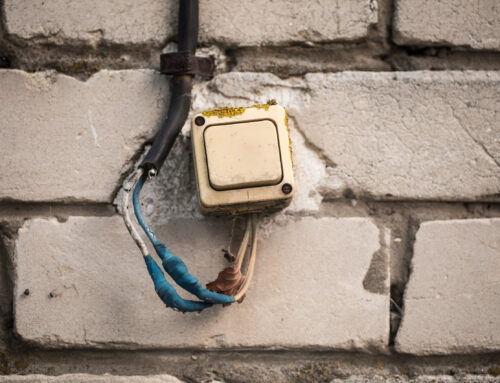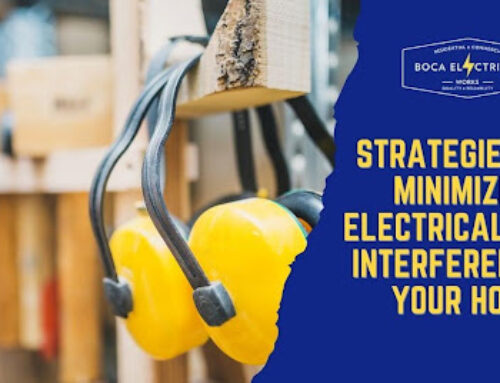In the charming corridors of older homes, where history whispers from every nook and cranny, the safety and efficiency of electrical systems often speak volumes about the care and attention given to these venerable structures. Updating electrical wiring and systems in such residences isn’t just a matter of enhancing convenience; it’s crucial for ensuring safety, optimizing efficiency, and preserving the intrinsic value of a historic property. This task, while daunting, underscores the delicate balance between maintaining the aesthetic integrity of an older home and adapting to modern electrical standards.
As we delve into the common electrical concerns that shadow these architectural treasures, it becomes evident that addressing these issues is not merely a suggestion—it’s a necessity. From the quaint, flickering lights in the study to the antiquated sockets in the living room, each element tells a story of a time gone by, but also signals the need for an upgrade. This article aims to guide you through identifying and solving these prevalent problems, always with a nod to the indispensable expertise of professional electricians who can ensure that your home remains both safe and timelessly elegant.
Understanding Your Home’s Electrical System
Navigating the electrical labyrinth of an older home can feel like stepping back in time, revealing a patchwork of past technologies and materials. Understanding the bones of your home’s electrical system is pivotal, not only for maintaining its historical charm but also for ensuring its functionality meets today’s safety and efficiency standards. Here, we explore the nuances of residential electrical wiring, highlighting the need to identify and update outdated systems. This insight is not just about keeping the lights on; it’s about safeguarding your sanctuary and enhancing its efficiency for modern living.
- Cloth-insulated wiring: Once a standard, cloth-insulated wires are now considered a fire hazard compared to modern, safer materials.
- Knob and tube wiring: Prevalent in homes built before the 1950s, this system lacks a grounding wire, making it incompatible with many of today’s appliances and technologies.
- Fuse boxes: Older homes often come with fuse boxes rather than circuit breakers, which can be less convenient and offer less protection from overloads.
- Aluminum wiring: Used during the 1960s and 1970s as a cost-effective alternative to copper, aluminum wiring is now known for its higher risk of overheating and connection issues.
- Two-prong outlets: Common in older homes, these outlets do not have a ground wire, posing a risk for electrical shock and limiting the use of modern three-pronged devices.
Common Electrical Problems in Older Homes
Older homes, with their unique charm and character, often harbor electrical systems that have become relics of the past. These systems, while once state-of-the-art, now pose various challenges ranging from faulty wiring to insufficient power supply and outdated panels. Such common electrical hazards in vintage homes not only compromise safety but can also detract from the property’s functionality and value. Understanding these prevalent issues is crucial for homeowners, as recognizing the signs your old house needs rewiring or updating is the first step towards ensuring a safe, efficient living environment.
How to Identify Faulty Wiring
Faulty wiring stands as a silent menace in many older homes, often concealed behind walls and beneath floors, making it particularly insidious. Recognizing the symptoms of faulty wiring is essential for preventing potential hazards. Key indicators include:
- Flickering or dimming lights
- Outlets or switches that are warm to the touch
- Persistent burning smell without an identifiable source
- Frequent circuit breaker trips
- Shock or tingling sensation when touching appliances
Armed with this knowledge, homeowners can take proactive steps to address wiring issues, safeguarding their homes against electrical fires and other dangers.
The Dangers of Outdated Electrical Panels
Electrical panels are the heart of a home’s electrical system, distributing power throughout the property. However, panels in older homes may not only be outdated but also incapable of meeting the demands of modern electrical consumption. These outdated panels can pose significant risks, including:
- Increased risk of electrical fires due to overloaded circuits
- Inability to support modern appliances and technology
- Potential for electric shock or electrocution
Upgrading outdated electrical panels is more than a home improvement project; it’s a critical investment in the safety and efficiency of your living space. Modernizing your electrical panel ensures that your home can safely handle current electrical loads and provides a foundation for any future technological enhancements.
Professional Solutions for Electrical Upgrades

image for Addressing Electrical Concerns in Older Homes: Common Problems and Solutions
Navigating the complexities of upgrading an older home’s electrical system requires more than just a keen eye and a DIY spirit; it necessitates the expertise and precision that only professional electricians can provide. Whether it’s a comprehensive assessment, a critical upgrade of the electrical panel for home safety, or the intricate process of rewiring, professionals bring a level of safety, efficiency, and compliance to the project that is unparalleled.
When to Rewire Your Old House
Deciding to rewire an older home is a significant decision that can affect both the safety and functionality of the property. Indications that it might be time to consider a complete rewiring project include:
- Recurrent problems with blowing fuses or tripping circuit breakers
- The presence of knob-and-tube, aluminum, or cloth-insulated wiring
- Renovation or addition plans that will increase electrical load
Enhancing Energy Efficiency
Upgrading the electrical system of an older home presents a prime opportunity to improve its energy efficiency. Modern electrical upgrades can significantly reduce energy consumption, lower utility bills, and contribute to a more sustainable future. Strategies for enhancing energy efficiency include:
- Installing energy-efficient lighting and appliances
- Upgrading to a modern electrical panel that can better manage energy use
- Implementing smart home technology for more efficient heating, cooling, and lighting control
DIY vs. Professional Electrical Repairs
The debate between tackling electrical repairs as DIY projects versus enlisting the expertise of professional electricians is a significant one, especially in the context of older homes with their unique challenges and requirements. Emphasizing “DIY vs professional electrical repairs” and the importance of “electrical code compliance for historic buildings,” we present a comparative overview to guide homeowners in making informed decisions.
| Aspect | DIY Electrical Repairs | Professional Electrical Repairs |
| Safety | High risk of errors leading to fires, shocks, and injury | Ensures safety with repairs done to professional standards |
| Expertise | Limited by the individual’s knowledge and experience | Comprehensive understanding of electrical systems and troubleshooting techniques |
| Compliance | Potential violation of local codes and standards | Guaranteed compliance with electrical codes, especially important in historic buildings |
| Cost | Initially lower, but can lead to costly mistakes | Higher upfront cost, but saves money in the long term through proper diagnosis and repair |
| Time and Efficiency | Can be time-consuming and prone to errors | Efficient and timely repairs due to professional experience and tools |
| Peace of Mind | Often accompanied by uncertainty and safety concerns | Assurance of safety, functionality, and code compliance |
This comparative analysis underscores the importance of expertise and professional oversight when it comes to electrical repairs in older homes. The risks associated with DIY electrical work, particularly in properties with historic value, often outweigh the initial savings. Professional electricians not only bring a level of proficiency and safety to the task but also ensure that repairs are in line with current electrical standards and codes, safeguarding the home’s integrity and the well-being of its inhabitants.
Key Takeaways
Addressing the electrical concerns inherent in older homes is not merely a matter of preserving their historic charm but ensuring they are safe, efficient, and viable for modern living. This article has underscored the crucial importance of recognizing and rectifying common electrical problems, from outdated wiring and panels to the inefficiencies of past systems. We’ve highlighted the risks associated with DIY electrical repairs and contrasted them with the substantial benefits of entrusting such tasks to professional electricians. Professionals not only bring expertise and compliance with current electrical codes, particularly crucial in historic buildings, but also offer a pathway to enhancing the energy efficiency of these cherished homes. By prioritizing professional assistance for electrical upgrades and repairs, homeowners can safeguard their safety, ensure their home meets modern standards of efficiency, and preserve the value of their property. In essence, the blend of safety, efficiency, and preservation stands out as the foundational pillars for any electrical work undertaken in older homes, ensuring they remain as legacies for generations to come.
People Also Ask
Older homes may present unique challenges and considerations when it comes to electrical systems and maintenance. Here are some frequently asked questions regarding electrical concerns in older properties:
How often should electrical wiring be inspected in an older home?
Electrical wiring in an older home should typically be inspected by a qualified electrician every 5 to 10 years to ensure it meets modern safety standards and to detect any potential hazards such as outdated wiring or faulty connections.
Can antique light fixtures be used with modern electrical systems?
Antique light fixtures can be used with modern electrical systems, but it’s essential to have them properly inspected and rewired by a qualified electrician to ensure they meet current safety codes and standards.
What are the signs of electrical overload in historic homes?
Signs of electrical overload in historic homes may include flickering lights, frequently tripped circuit breakers or blown fuses, burning odors from outlets or switches, and hot or discolored electrical panels, indicating that the electrical system is being strained beyond its capacity.
How does electrical rewiring affect home insurance for older homes?
Electrical rewiring in older homes may affect home insurance premiums, as insurance companies often view updated electrical systems as reducing the risk of fire and other hazards, potentially leading to lower premiums or improved coverage.
Are there special considerations for electrical work in heritage-listed properties?
Electrical work in heritage-listed properties may require special considerations and approvals from local heritage authorities to ensure that any alterations or updates to the electrical system preserve the historical integrity of the property while still meeting modern safety standards.
Ready to Illuminate Your Home’s Potential? Contact BocaElectrical Today!
At BocaElectrical, we’re not just about wires and circuits; we’re about ensuring that every home, especially the time-honored ones, can shine brightly and safely in today’s world. Our mission is to provide safe, reliable, and efficient electrical solutions that respect the integrity of your older home while bringing it up to the modern standards of safety and efficiency. Whether you’re facing flickering lights, pondering a full home rewiring, or simply seeking peace of mind about your electrical system’s safety, our team of experts is here to guide you every step of the way.
Don’t let outdated electrical systems dim the beauty and safety of your home. Reach out to BocaElectrical for an inspection or consultation, and let us help you ensure that your electrical system is not only up to date but also prepared to meet your future needs. Together, we can preserve the charm of your older home while ensuring it remains a safe, efficient, and vibrant place to live. Contact us today to light up your home’s potential!



